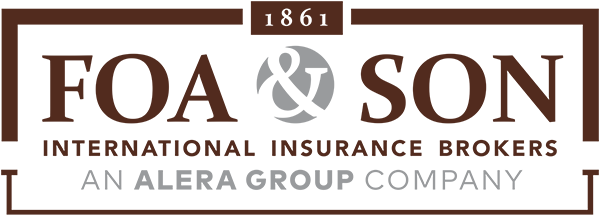
In the fourth episode of “Food for Thought,” Foa & Son’s Michael Lieberman challenges viewers to change the way they think about food and beverage supply chain transparency.
Lieberman, who hosts the new food and beverage risk management web series, spoke with John Keogh. Mr. Keogh is the managing principal at niche advisory and research firm, Shantalla, Inc. The firm focuses on how technology, combined with analytical science and regulations, can enhance transparency and trust in the supply chain.
Many food and beverage companies turn to technology that claims to solve transparency issues. But, while technology can and should play a role, Mr. Keogh puts emphasis on science when discussing food safety. “No software can tell you if your food is safe to eat,” Keogh states. “Natural science is the enabler of transparency and trust because of the objective certainty in terms of the ascertainable and verifiable characteristics of the product.”
Mr. Keogh challenges the food community to think not about a supply chain, but rather what he terms “the food and beverage ecosystem.” As Keogh explains, the concept of a supply chain illustrates linear movement. But the true make-up of the food and beverage industry is one of multiple systems working together.
With the threat of one or more systems becoming compromised by such events as the Covid-19 pandemic, Keogh encourages companies to focus on resilience. “The key component is discovery. When did you discover the problem? It’s only when you discover it, that you can start to do the recovery.” Keogh continues by bringing the focus back to technology. “Technology tripwires can provide you with that advanced warning for something that may happen or is about to happen.” Mr. Keogh warns, “if you discover it after it’s happened, it’s way too late. We need to be more predictive.”
The Covid-19 pandemic caused major disruptions within the food and beverage supply ecosystem. Many companies had to react quickly to meet demand. But what was lost when it comes to transparency as a result of such knee-jerk reactions? That question is still being answered.
Consumers today are very sophisticated. They want to know more about the products that they are consuming. So companies make promises through their labeling with phrases such as “organic,” “non-GMO,” or “wild caught.” But when information coming from one of the systems within the ecosystem lacks proper verification, there is much at risk for the companies making those promises. Consumer trust, once lost, can be very hard to get it back.
In closing, Keogh states, “look at your ecosystems end to end, and focus on the ecosystem rather than just the linear supply chain of products.” By looking at the ecosystem, companies can take a more comprehensive view of where transparency mishaps can take place, and insert proper risk management “tripwires and circuit breakers” to identify issues early and take appropriate action.
In a follow up discussion with Michael Lieberman, he states that transparency, or lack thereof can lead to many types of direct and consequential losses. One key exposure that has caught his attention is economic adulteration. This is when a lesser quality item is substituted for a higher quality item for economic gain. “We have seen this in the spice industry. The substitution of peanut protein for cumin comes to mind. Not only is this an act of economic adulteration and fraud, it puts the consuming public at risk from a food safety perspective.”
Lieberman states that the more companies focus on transparency and are then able to articulate that commitment to insurance underwriters through their partner broker, the easier it will become to secure vital coverages, coverages such as product liability, FDA rejection coverage, or contamination & recall at competitive premium levels. “In the absence of such detail, you may find that underwriters lack enthusiasm about taking on that particular risk. Perhaps they take a pass altogether.”
To view the entire discussion between Michael Lieberman and John Keogh, please view Food for Thought Episode 4 here.


